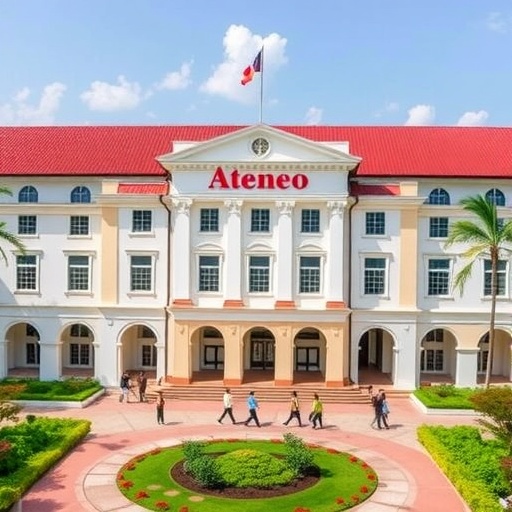Ateneo de Manila University has once again demonstrated its upward trajectory in global academic excellence, as evidenced by its position in the 2026 edition of the Quacquarelli Symonds (QS) World University Rankings. The institution secured a rank of 511 out of 1,501 globally recognized universities hailing from 106 territories, an achievement that solidifies its place among the foremost higher education establishments worldwide. This continued advancement reflects significant improvements in various academic and institutional metrics, signaling Ateneo’s commitment to fostering a world-class educational environment.
The QS World University Rankings, now in its 22nd edition, are widely regarded as one of the most influential benchmarks for assessing universities globally. These rankings derive from a composite of nine rigorous indicators which collectively measure diverse aspects such as research output, employability of graduates, academic reputation, and sustainability practices. Ateneo’s performance illustrates not only academic robustness but also the effectiveness of its strategic initiatives aimed at global engagement and sustainable development.
Among the individual indicators, Ateneo de Manila University exhibited notable gains in Academic Reputation, Faculty-Student Ratio, and Sustainability metrics. Specifically, its Academic Reputation improved to a rank of 385, a figure that underscores the international recognition of its scholarly contributions and educational quality. The Faculty-Student Ratio, moving to position 586, points to Ateneo’s efforts in maintaining a balanced and effective educational framework where faculty can offer more personalized attention to students. The sustainability ranking, marked at 497, highlights the university’s growing emphasis on environmental stewardship and socially responsible policies, aligning with global trends of sustainable education.
Ateneo’s standing as the top private university in the Philippines and its position as second overall behind the University of the Philippines (ranked at 362) paint a picture of increasing competitiveness within the national higher education landscape. The inclusion of six Philippine universities in the rankings, including new entrants such as Adamson University and Mapua University, emphasizes the country’s expanding role in producing globally competent institutions. This regional dynamic reflects broader patterns of academic development and internationalization within Southeast Asia.
Globally, the Massachusetts Institute of Technology (MIT) retains its dominance by leading the QS rankings, maintaining its reputation as a premier institution for science and technology education. Meanwhile, the National University of Singapore, positioned as the best Asian university at rank 8, signals the rise of Asia as a powerful hub for innovative research and quality education. Ateneo’s progress within this context is a testament to its ability to navigate the demands of global academic competitiveness while carving out its unique identity.
An analysis of the QS indicators reveals that employer reputation remains a strong point for Ateneo, positioned at 148. This ranking conveys the success of its graduates in the job market and underscores the relevance of its academic offerings to industry and society. Employment Outcomes, similarly ranked at 157, reinforce this narrative by indicating the university’s effective preparation of students for impactful professional careers worldwide.
On the research front, the university’s metrics display a mixed profile. While Citations per Faculty, International Faculty, International Research Network, and International Students all appear in the 801+ category, these areas indicate room for growth in enhancing research visibility, international collaboration, and the attraction of a diverse academic community. These dimensions present future opportunities for Ateneo to elevate its global standing through expanded research outputs and increased international engagement.
The Faculty-Student Ratio metric’s notable improvement is a technical indicator emphasizing the importance of a balanced educational ecosystem where faculty availability supports quality instruction and mentoring. This balance contributes directly to improved learning outcomes, facilitating critical thinking and innovation among students. Coupled with advances in sustainability, these indicators depict Ateneo’s strategic shifts towards holistic education that incorporates environmental ethics and social responsibility.
University President Fr Roberto Yap SJ articulated the significance of this ranking achievement not merely as a badge of honor but as a call to continue their mission. His emphasis on becoming a “Laudato Si’ university” points to the commitment of Ateneo to integrate Pope Francis’s encyclical principles on environmental care and social justice into its academic and operational ethos. This vision drives the institution to foster a just, compassionate, and hope-filled academic community reflective of global ethical concerns.
Further, Ateneo’s rise within the QS rankings affirms that it meets several layers of institutional excellence beyond academic reputation—it demonstrates impact through teaching methodologies, research innovations, and community service. This multifaceted contribution solidifies its role not just as a center for knowledge creation but as an influential agent driving societal transformation in the Philippines and beyond.
The full QS ranking methodology, accessible on the official QS website, outlines the precise evaluative frameworks used to assess universities. These comprehensive assessments ensure that rankings fairly represent the complex dimensions of modern academic excellence, from quantitative research citations to qualitative reputational surveys. Ateneo’s steady climb within this framework is a marker of its progressive enhancements across these domains.
As global challenges demand interdisciplinary and sustainable approaches, Ateneo’s recognition within the QS rankings underscores the strategic value of universities that champion these ideals. Its commitment to sustainability and enhanced faculty engagement aligns well with emerging trends in academia, where adaptation, responsiveness, and social impact heavily influence institutional prestige.
In conclusion, Ateneo de Manila University’s ranking at 511 in the QS World University Rankings for 2026 reflects a promising ascendance fueled by improved academic reputation, faculty dynamics, sustainability pledges, and a broad vision of education’s role in society. As it continues to balance technical research strength with ethical leadership, Ateneo stands poised to carve an even more impactful position in the global knowledge ecosystem, inspiring other institutions regionally and worldwide.
Subject of Research: Higher education institutional rankings and performance indicators
Article Title: Ateneo de Manila University Advances in 2026 QS World University Rankings, Cementing Global Academic Presence
News Publication Date: 19 June 2025
Web References:
https://www.topuniversities.com/qs-world-university-rankings
Keywords: Education, Higher Education, University Rankings, Academic Reputation, Sustainability, Faculty-Student Ratio, Research Impact, QS World University Rankings, Ateneo de Manila University, Global Education




